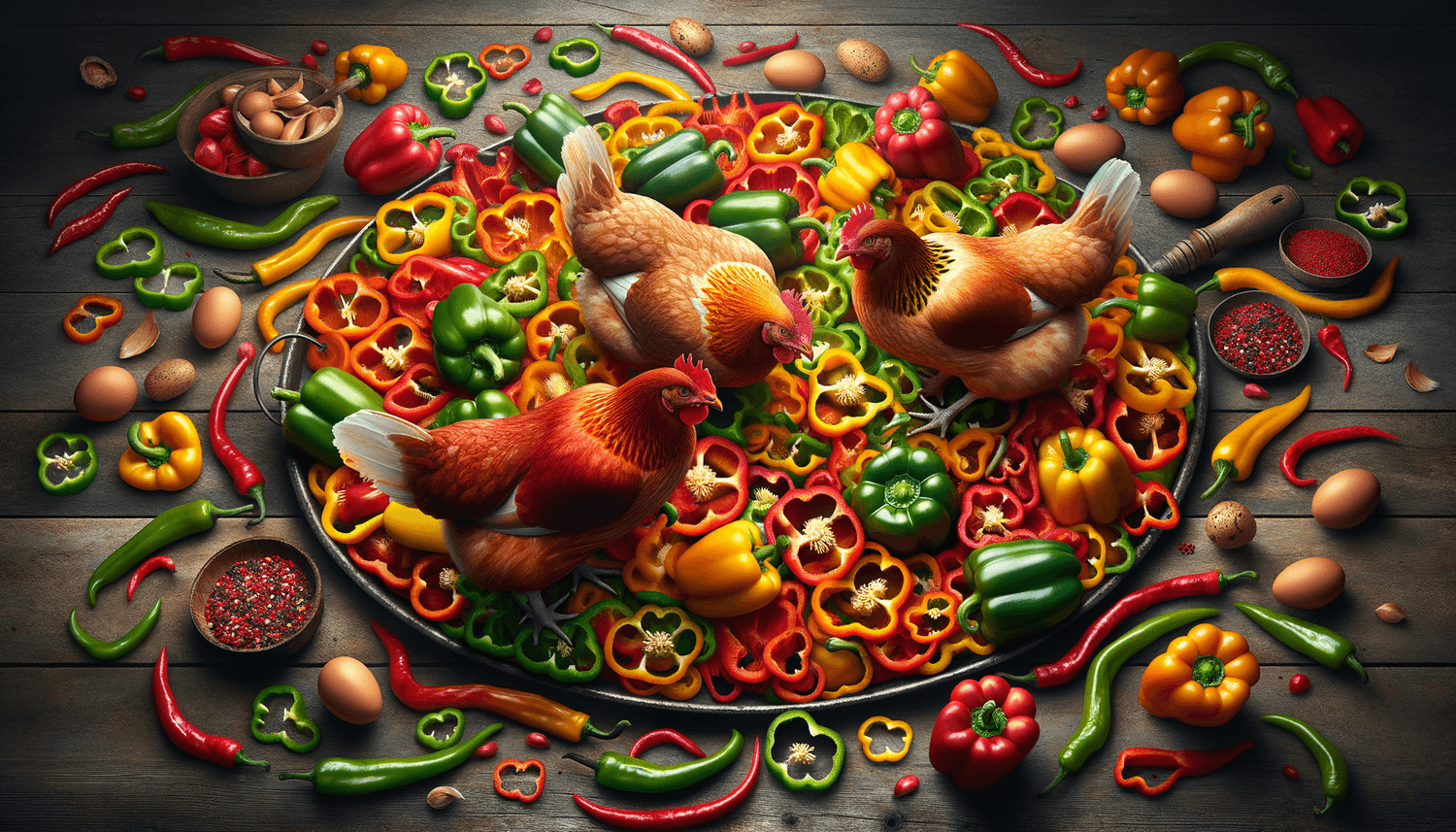Welcome to the clucking good world of backyard chickens! Today we’re going to talk about a scrumptious meal option for our feathered friends: bell pepper scraps. But, can our beaked buddies gobble down these colorful delights? On this fun journey, we’ll uncover if these tasty tidbits are safe for our hens, discuss the importance of a balanced diet, benefits and potential risks, nutritional value, and even share the secret to preparing this popular veggie for your chickens. So, fluff your feathers and let’s get started!
Can chickens eat bell pepper scraps?
Yes, chickens can safely eat bell pepper scraps! These colorful treats are not only fun for them to peck at, but they are also a healthy snack option. Bell peppers are packed with vital nutrients like vitamins A and C, which benefit their immune system and overall health.
A balanced diet for happy chickens
Just like us humans, chickens need a well-rounded and balanced diet for optimal health and happiness. A chicken’s diet should primarily consist of high-quality chicken feed, which should make up around 80-90% of their diet. This ensures that our feathery friends receive all of the essential nutrients they need for proper growth, strong egg production, and overall well-being.
The remaining 10-20% of their diet can consist of treats like fruits and vegetables, which not only offer an enjoyable change of pace but also provides additional nutrients and variety. Offering your flock a diverse diet not only keeps them interested in their food but also contributes to a healthier and happier life. So, go ahead and share those bell pepper scraps with your chickens, while making sure that the majority of their diet is still comprised of nutritious chicken feed.
Nutritional value of bell pepper scraps for chickens.
Feeding bell pepper scraps to chickens not only provides an enjoyable treat for them but also offers a variety of nutritional benefits. Bell peppers are loaded with essential vitamins and minerals that contribute to the health of your backyard flock. One of the key vitamins they provide is vitamin A, which aids in maintaining good vision, healthy skin and feathers, and strong immune function. Another important vitamin present in bell peppers is vitamin C, which helps strengthen their immune system and fight off diseases.
In addition to vitamins, bell peppers are also an excellent source of hydration for chickens, as they have a high water content. This is particularly beneficial during hot weather or when your chickens may not have easy access to water. Furthermore, bell peppers contain a small amount of beneficial minerals like calcium and phosphorus, which play a crucial role in bone health and eggshell production.
Although there are many advantages to feeding bell pepper scraps to chickens, it’s important not to overdo it. Treats like these should be part of an overall diverse diet that includes a majority of high-quality chicken feed to meet their dietary needs. So, feel free to offer bell pepper scraps as a tasty treat, but always remember to maintain a well-rounded diet to ensure their optimal health.
Nutrition table of bell pepper scraps for chickens.
| Information | Description |
|---|---|
| Nutritional Value | Source of vitamins A and C, calcium, phosphorus, and hydration |
| Suggested Serving Size | Offer sparingly, treats should make up 10-20% of a chicken’s diet |
| Safe Feeding Practices | Never feed spoiled or moldy food, bell peppers should be fresh and clean |
| Preparation | Remove seeds and chop into small, manageable pieces for the chickens’ easy consumption |
| Potential Risks | Minimal risks as long as the bell pepper scraps are fresh and mold-free and are not excessively fed |
| Hydration | High water content provides extra hydration, particularly during hot weather |
| Digestion | Easily digestible source of vitamins and hydration |
| Seasonal Availability | Generally available year-round, with peak season from July to September |
| Other Benefits | Provides variety to the diet and adds color to the feeding area |
Additional tips for feeding bell pepper scraps
When offering bell pepper scraps to your chickens, there are a few tips and best practices that can help make it an enjoyable and safe treat. First, always remove the seeds and the white inner membrane, as these parts can pose a choking hazard to chickens. Next, chop the bell pepper scraps into small, manageable pieces that are easy for your flock to eat.
Remember to always provide clean, fresh water for your chickens alongside their treats. While bell peppers do supply some hydration, water remains essential for overall health and bodily functions. Feeding bell pepper scraps with other treats should still be kept in check, ensuring that they do not become the primary source of nutrition for your chickens.
Alternative treats for your chickens
Bell pepper scraps make for an excellent treat, but variety is essential for a happy and healthy flock. Other fruits and vegetables can also be offered to your chickens, such as cucumbers, zucchini, lettuce, and berries. These treats can help keep your flock entertained while providing added benefits to their overall diet. Be sure to research each vegetable or fruit to confirm its safety for chicken consumption, as there are a few items that should be excluded, like avocados and green tomatoes.
Final thoughts
So, go ahead and share those colorful, nutrient-rich bell pepper scraps with your backyard flock! Providing your chickens with a diverse and balanced diet, including treats like bell peppers, can add joy and enrichment to their lives while ensuring they receive essential nutrients. Remember to always prioritize high-quality chicken feed as their primary source of nutrition and serve treats like bell pepper scraps as a supplementary part of their overall diet.

















